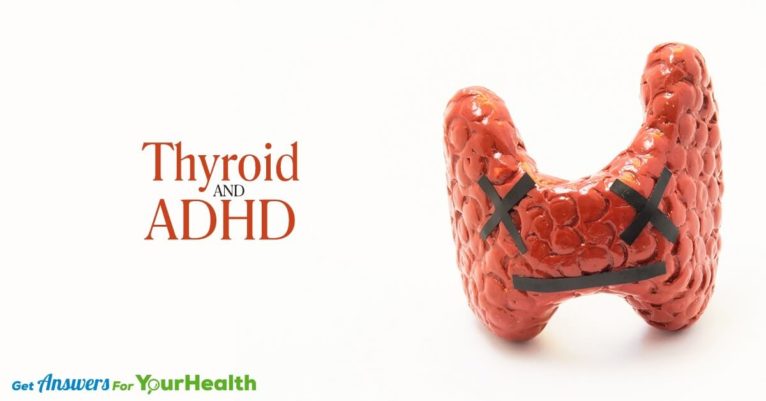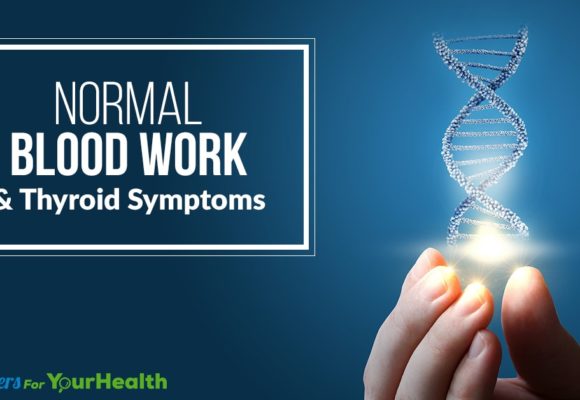1) Grab a FREE copy (Value $14.95) of one of my books Thyroid Symptom Overload
Just pay shipping $7.95 for any US orders. Or, if you want to pay full price plus shipping, order from Amazon :)
2) Take our Thyroid Quiz today and find out what "Thyroid Type" you have
This quiz will help you quickly discover where your symptoms are stemming from.
3) Join Our Thyroid Advocate Membership Site - Natural Thyroid Academy
FREE for a limited time. No credit card required.
4) Work with me and my team privately
Schedule your FREE 15 minute phone consultation and we can find out the best way to help you specifically.
You probably will be surprised to know that thyroid diseases have a very close connection to quite a few mental disorders. This happens because thyroid hormone don’t just help in the proper digestion of food or maintain body temperature. Rather, it plays a part in pretty much all body functions including sex hormones and cognition. This is the reason why people who have a thyroid condition don’t only experience brain fog and sluggishness, they also can develop depression, anxiety, and a variety of mood disorders.
This is where ADHD comes into the picture. Symptoms of ADHD and thyroid disorder are pretty similar. Read on to discover the symptoms of thyroid disease and/or ADHD.
What is ADHD?
ADHD is short for Attention Deficit Hyperactivity Disorder. It is a neurological and genetic disorder that affects about 4.4% of the people in United States. But aren’t children supposed to have it? Yes, the condition is more common among young boys and girls. However, it is fast becoming prominent among adults as well.
It usually occurs when people have a genetic predisposition. The onset of the disease is usually in childhood, but it can turn into a full-fledged problem during adulthood. Those who have ADHD may not be as hyperactive as children would be, but reckless behavior and impulsive attitude prevails. Some common symptoms of ADHD among adults are:
- Poor time management skills
- Poor planning skills
- Difficulty focusing on any given task
- Disorganization
- Impulsiveness
- Low frustration levels
- Problems with multitasking
- Hot temper
- Common mood swings
- Trouble dealing with stress
- Having a hard time completing tasks
Keep in mind that just because you have had these symptoms at some point in time does not make you ADHD. You will only be diagnosed with the condition when the symptoms are so severe that they disrupt the normal function of life. If you feel you have these symptoms, particularly with your attention span, mood swings, and inability to focus, then you will need to see your doctor for a proper diagnosis.
What is Thyroid Disease?
Thyroid problems have likewise become very common these days. More kids and adults are being diagnosed as hyper or hypothyroid. The thyroid gland is situated right beside the Adam’s apple in the throat and is responsible for the secretion of thyroid hormone. This hormone monitors the optimal function of the metabolic rate as well as body temperature. But this is not where its responsibility ends.
The thyroid hormone also aids the brain for optimum function. Hence the reason why so many symptoms of thyroid disorders are related to the brain. Two of the most common and prevalent thyroid diseases are hyperthyroidism and hypothyroidism. Hyperthyroidism leads to an overactive thyroid gland, where the thyroid produces excessive amounts of thyroid hormone which causes the metabolic system to work “overtime” leading to:
- Weight loss even with increased appetite
- Tremors in hands and fingers
- Heart palpitations
- Excessive sweating
- Hair loss
- Clammy skin
- Goiter or swelled up throat
- Diarrhea
- Anxiety and mood swings
Hypothyroidism is the underactive thyroid gland that causes a lower production of thyroid hormones. This causes the metabolic rate to slow down and in turn cause:
- Obesity
- Constipation
- Dry skin and brittle hair
- Muscular aches and pains
- Lowered heart rate
- Cold intolerance
- Depression and anxiety
If you have any of the above mentioned signs and symptoms, then chances are high you have some kind of thyroid malfunction. You need to speak with your doctor regarding your symptoms. Only then will you be diagnosed accurate.
How are the Two Connected?
So what is the connection between thyroid disease and mental disorders like ADHD? Studies show that the quantity of TSH is directly related to cognitive function. This means that when the thyroid isn’t functioning appropriately, TSH levels will be high and your cognitive functions will be diminished.
Research also suggests that children who have ADHD are also more at risk of developing thyroid issues later in life as compared to other children. Why this occurs is not clear yet, but the research is ongoing and there is hope that more answers would be obtained in upcoming years.
Studies also imply that people who have hyperthyroidism and ADHD at the same time are more likely to experience an inability to finish tasks, difficulty focusing, and increased hyperactivity. What’s more, thyroid disorders and ADHD also inhibit a person’s ability to interact well socially, be more active, or present at school or work. This can severely impact a person’s life.
What Can be Done?
If you feel that you haven’t already been diagnosed with either of the conditions, then the first step is to visit a doctor and find out what the problem may be. Also note that many people who have all kinds of testing performed will show up as “normal.” This does not mean you don’t have a problem as one may think. So if you doctor suggests its “all in your head” or all your tests results are “normal”, you may want to get a second opinion to look more at the root cause of the problem. Listen to your gut instinct, it’s usually right!
References
- https://www.mayoclinic.org/diseases-conditions/adult-adhd/symptoms-causes/syc-20350878
- https://www.psychologytoday.com/blog/here-there-and-everywhere/201706/is-it-adhd-or-thyroid-disorder
- https://healthsolutionsplus.org/can-thyroid-hormone-deficiency-affect-mental-health/
- https://www.ncbi.nlm.nih.gov/pubmed/8410504








